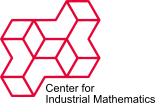EU-ROMSOC: Project ''Data Driven Model Adaptations of Coil Sensitivities in MR Systems''
| Working Group: | WG Industrial Mathematics |
| Leadership: | Prof. Dr. Dr. h.c. Peter Maaß ((0421) 218-63801, E-Mail: pmaass@math.uni-bremen.de ) |
| Processor: | |
| Funding: | EU-Projekt im Rahmen der Marie Sklodowska-Curie Action |
| Project partner: |
Prof. Dr. Volker Mehrmann, TU Berlin Dr. Andreas Binder, Math Consult GmbH Prof. Dr. Ronny Ramlau, Johannes Kepler University Linz Roberto Biasi, MICROGATE SRL Prof. Dr. Peregrina Quintela Estévez, Instituto Tecnológico de Matemática Industrial Prof. Dr. Jean-David Benamou, INRIA Paris Prof. Dr. Michael Günther, Bergische Universität Wuppertal Salvatore Rinaudo, STMicroelectronics SRL Prof. Dr. Alexander Martin, Friedrich-Alexander-Universität Erlangen-Nürnberg Prof. Dr. Christian Vergara, MOX - Politechnico di Milano Prof. Dr. Gianluigi Rozza, Scuola Internazionale Superiore di Studi Avanzati |
| Time period: | 01.11.2017 - 30.04.2021 |

Young researchers work in the doctorate program ROMSOC "Reduced Order Modelling, Simulation and Optimization of Coupled Systems" in an international consortium of twelve academic and eleven industrial partners from seven countries. The project is coordinated by Prof. Dr. Volker Mehrmann from TU Berlin and ZeTeM is involved with one subproject.
Product development today is increasingly based on simulation and optimization of virtual products and processes. Mathematical models serve as digital twins of the real products and processes and are the basis for optimization and control of design and functionality. The models have to meet very different requirements: Deeply refined mathematical models are required to understand and simulate the true physical processes, while less refined models are the prerequisites to handle the complexity of control and optimization. The currently most favoured way in industrial applications to achieve such a model of hierarchy is to use a sufficiently fine parameterized model and then apply model order reduction techniques to tune this fine level to the accuracy, complexity and computational speed needed in simulation and parameter optimization.
The WG Industrial Mathematics of University of Bremen is head of the subproject "Data Driven Model Adaptations of Coil Sensitivities in MR Systems" and collaborates with the company SagivTech Ltd. based in Israel. The main goal is the development of data-driven approaches based on neural networks and deep learning in the field of magnetic particle imaging (MPI). MPI is an evolving technology aiming at non-radiative, non-invasive imaging of functional parameters such as blood flow or targeted metabolic processes.
Furthermore, a joint training programme will be developed which builds on the strengths of the academic and industrial partners and their strong history of academic/industrial cooperation. The early stage researchers have the opportunity to attend scientific and soft skills workshops and the supervision of their doctorate projects is assured through mentors from academia and industry.

